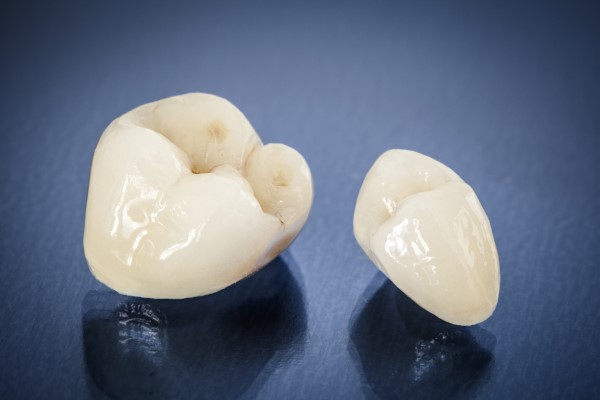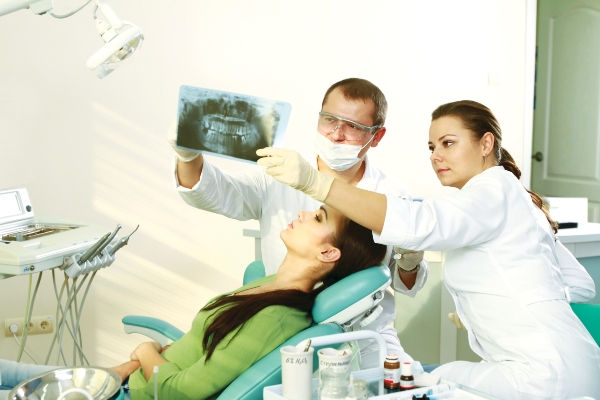What Happens During a Dental Crown Procedure

A cosmetic dentist can use a dental crown to improve your dental health. A tooth with severe decay or discoloration can be depressing. The infection could reach the pulp at any time. Placing a custom-fit dental crown can protect your tooth from further damage and injury. If you want to know more about the steps in getting a dental crown, here are the details.
The first stage
This happens on the first day of the procedure. The cosmetic dentist will order an X-ray of the patient’s jawbone and tooth. This will help determine how bad the infection is. A severe level of decay may put the pulp at risk of infection. Preventing this is a priority to the dentist. In some cases, a patient may need a root canal treatment first before having a dental crown over the tooth.
The dentist needs to shape the natural tooth first. This means shaving off a significant amount of enamel from the natural tooth. A metal-based crown is thinner. It will need less reshaping. Porcelain crowns need more reshaping. The cosmetic dentist will file down the sides and top of the tooth.
Drilling out the enamel will remove the decayed parts of the tooth as well. People with thin enamel will need some filling material. This will thicken and rebuild the enamel. Then, the cosmetic dentist will reshape the tooth. The new form of the tooth will allow the placement of the crown.
The dentist will then take an impression of the reshaped tooth. This will ensure the fabrication of a custom-fit dental crown. The resulting crown will need to fit over the treated tooth and complement the opposing tooth. A putty impression can hold the shape of the treated tooth. The cosmetic dentist spreads the putty over the area and then pulls it away.
Writing down the details of the tooth will provide the dental lab enough information. It is important for the crown to blend well with the neighboring natural teeth. This will increase the aesthetic quality of the crown. It will not be easy to distinguish the dental crown from the natural teeth.
The dentist will place a temporary crown over the prepared tooth. This will protect the tooth while the dental lab fabricates the permanent dental crown. It will not be a custom-fit crown. Some discomfort may be unavoidable.
The second stage
The dental lab will receive the impressions and additional information. It will take about three weeks to complete. The patient will come back for the dental crown placement. The cosmetic dentist will check the permanent crown to ensure its correct color and shape.
The dentist will give the patient a local anesthetic to numb the area. Then, the cosmetic dentist will remove the temporary crown. Dental cement will bond the permanent crown to the tooth. Some adjustments will ensure a good fit. The dentist will also make sure the patient’s bite is comfortable.
A custom-fit dental crown will shield the tooth underneath from decay and injury
Dental damage and decay can affect the way you speak, smile, and eat. This reduces your quality of life. Without protection, the damage or decay can worsen. Your cosmetic dentist will place a dental crown over the concerning tooth. This procedure may take up to two dental appointments to finish.
Are you considering a dental crown in the Philadelphia area? Get more information at https://frankforddentalcare.com.
Check out what others are saying about our dental services on Yelp: Dental Crowns and Dental Bridges in Philadelphia, PA.
Recent Posts
Dental crowns come in a range of material options, including zirconium and porcelain. These materials vastly increase the aesthetics and reliability of dental crowns as compared to past alternatives. Regardless of the material, most dental crowns look and work well. However, there are some significant variations between these options to be aware of. This article…
Dental crowns are dental restorations that cover teeth entirely for added protection, improved function, and cosmetic purposes. Dental crowns are versatile treatment solutions, and there are many reasons that a dentist may recommend this treatment for patients.The most common reasons that dentists recommend a dental crown are to protect a tooth that is weakened or…
Dental crowns are often costly and require that a dentist remove a significant amount of the tooth's structure to place them. Read on to learn about dental crown alternatives. Other treatment alternatives are sometimes available that are either less expensive or significantly less invasive. Dental crowns are frequently used to restore severely damaged teeth.The following…
Dental crowns can be used to fix various cosmetic and structural issues that affect the teeth. Also known as caps, dental crowns are some of the most versatile restorations used in dentistry, and they can last up to 25 years when properly maintained.Getting a dental crown attached to a tooth typically requires the dentist to…


